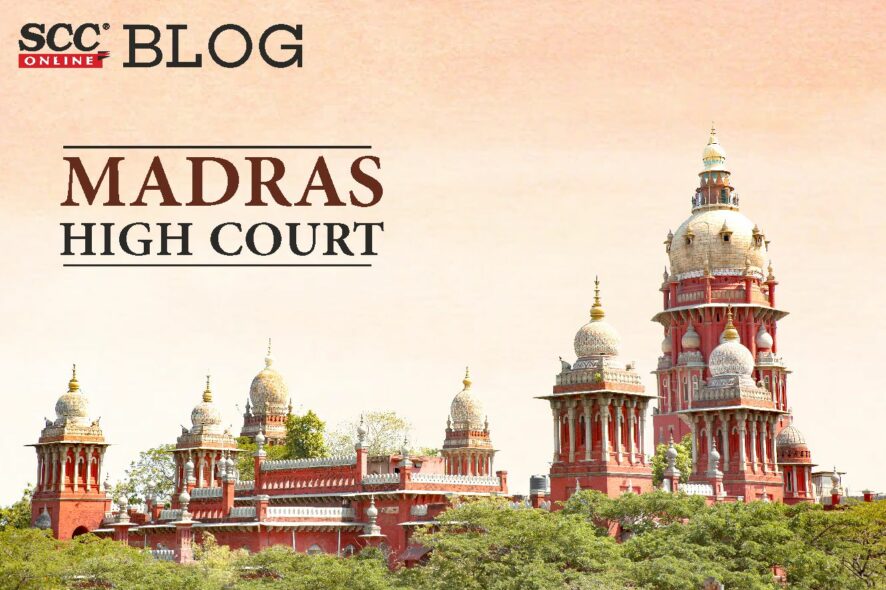Madras High Court: In a case related to an appeal filed to set aside the judgment and enlarge the appellant on bail, the division bench of S.Vaidyanathan and A.D.Jagadish Chandira, JJ. observed that no offence had actually taken place and no complaint has arisen from the so-called victim, but it is the case of the prosecution that merely on a suspicion of a police officer on duty who after seeing the appellant had enquired about him and on his confession statement the entire case of the prosecution had commenced and thereafter, keeping the statement of the appellant as a basis, the other links of the case of the prosecution, namely, the associates of the appellant in the alleged conspiracy had been fused.
The appellant was charged with offences under Ss.153-A(1)(b), 120-B, 201 of Penal Code, 1860 (IPC); S.7(1)(a) of Criminal Law Amendment Act,1932 (CLA); S. 25(1A) of Arms Act, 1959 and S.16 of Unlawful Activities (Prevention) Act, 1967 (UAPA), and was remanded to judicial custody on 08.03.2022 and is in incarceration for more than 100 days.
The Court took note of the provisions of the UAPA Act and observed that “when an offence falls within the provisions of Chapter IV of the Act, necessarily, while deciding an application for bail, the court has to take into consideration the proviso to Section 43D (5) of the Act and has to formulate an opinion as to whether there are reasonable grounds for believing that the accusation against the accused is prima facie true”.
The Court observed that initially, the prosecution had come out with allegations against the accused for the offences punishable under the provisions of IPC and CLA Act, later, the offence under the provisions of Arms Act got included and thereafter, the offence punishable under the provision of UAPA Act was introduced. It viewed that the provisions of UAPA Act have been included only in order to deny/delay the appellant from getting bail from the court and there is no other material to pin-point that the appellant and other accused had intended to commit the murder of the victim to create terror and fear among the public and people of other sections.
The Court further observed that “the State police has referred the case to be investigated by the National Investigation Agency (NIA), however, said proposal was rejected by NIA which speaks much about the case of the prosecution”. It relied on the judgement in National Investigation Agency v. Zahoor Ahmad Shah Watali, (2019) 5 SCC 1, wherein the Court laid down the aspects that need to be considered for deciding a bail application; and further took note of the ruling in Union of India v. K.A. Najeeb (2021) 3 SCC 713, wherein the court held that “ the presence of statutory restrictions like Section 43-D(5) of the UAPA per se does not oust the ability of the constitutional courts to grant bail on grounds of violation of Part III of the Constitution and both the restrictions under a statute as well as the powers exercisable under constitutional jurisdiction can be well harmonised”.
Moreover, as there was no complaint from any person and nobody was injured in this case, this case was merely registered based on suspicion and confession statement of the appellant; The Court held that “the allegations against the appellant do not fall within the definition of “Terrorist Act” and there are no reasonable grounds for believing that the accusation against the appellant is prima facie true”, hence, released the appellant on bail.
[Sadam Hussain v. State of Tamil Nadu, Criminal Appeal No.597 of 2022, decided on 26.8.2022]
Advocates who appeared in this case :
S.M.A.Jinnah, Advocate, for the Appellant;
Add. Public Prosecutor Babu Muthumeeran and Special Public Prosecutor (NIA) R.Karthikeyan, Advocate, for the Respondents.






